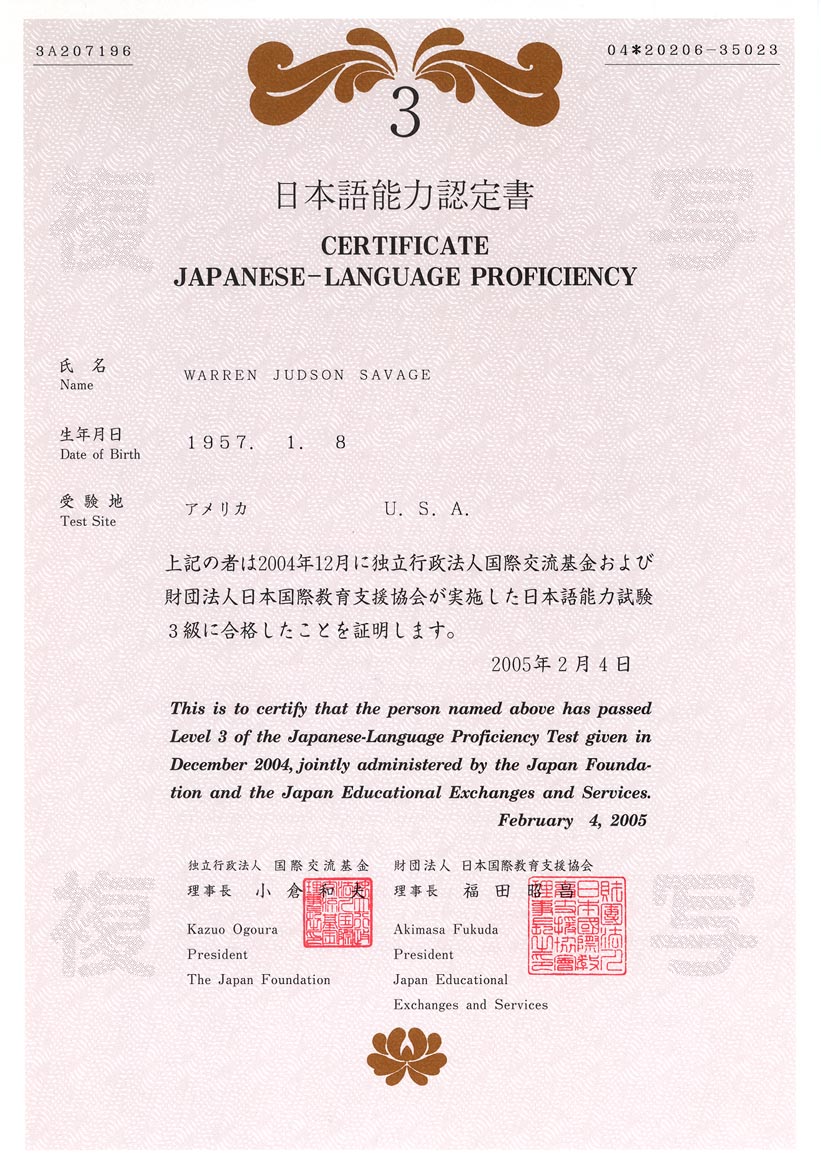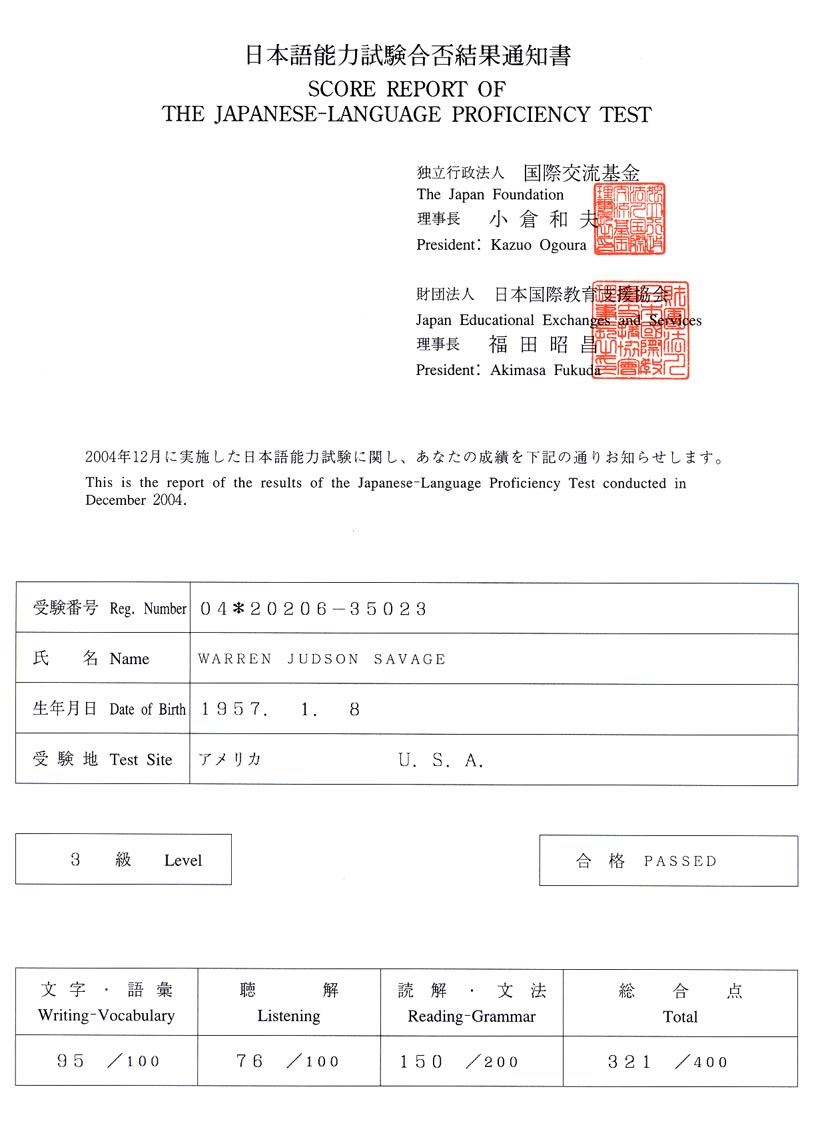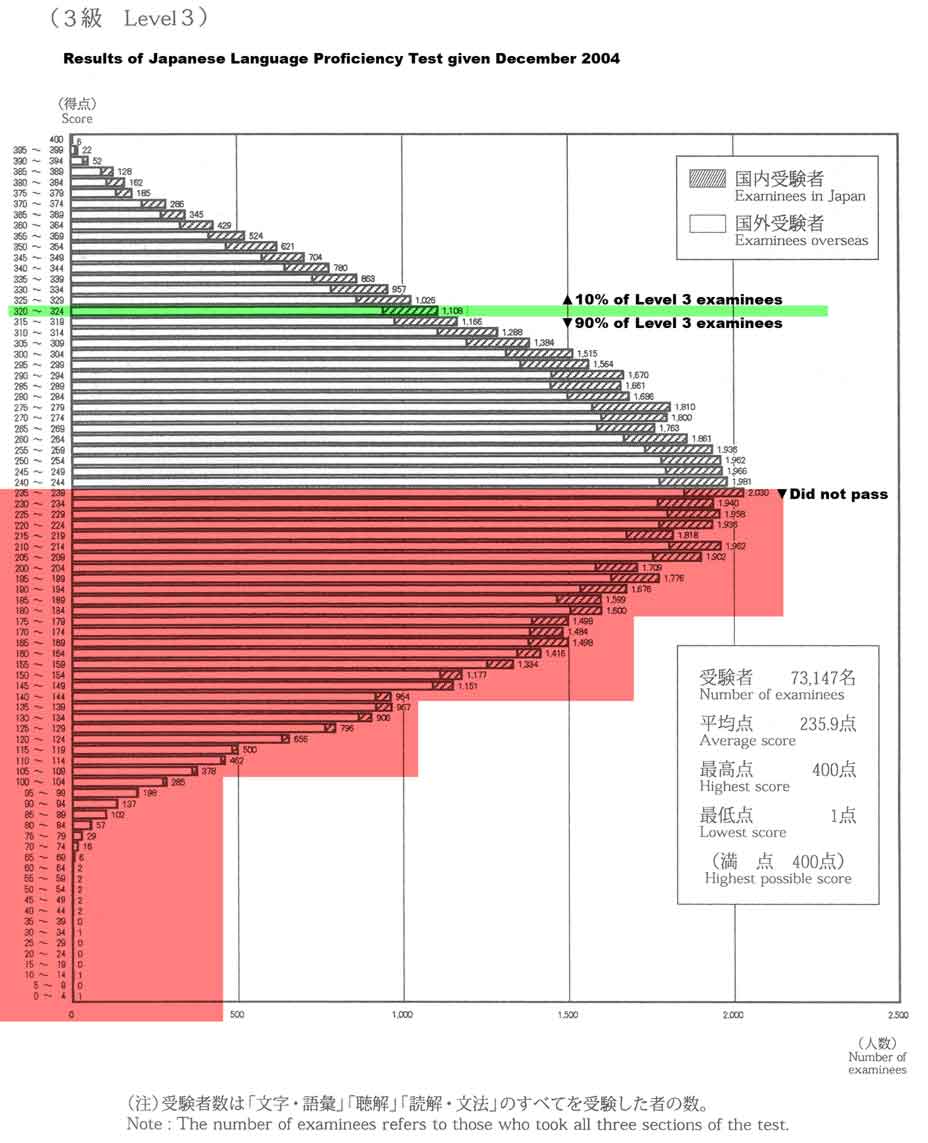| Level |
Content |
Criteria |
| Section |
Time
(min) |
Points |
| 1 |
Writing/
Vocabulary |
45 |
100 |
The examinee has mastered grammar to a high level,
knows about 2,000 Kanji and 10,000 words, and has an integrated
command of the language sufficient for life in Japanese society,
providing a useful base for study at a Japanese university. This level
is normally reached after studying Japanese for around 900 hours. |
| Listening |
45 |
100 |
Reading/
grammer |
90 |
200 |
| Total |
180 |
400 |
| 2 |
Writing/
Vocabulary |
35 |
100 |
The examinee has mastered grammar at relatively high
level, knows about 1,000 Kanji and 6,000 words, and has the ability to
converse, read and write about matters of a general nature. This level
is normally reached after studying Japanese for around 600 hours and
finishing an intermediate course. |
| Listening |
40 |
100 |
Reading/
grammer |
70 |
200 |
| Total |
145 |
400 |
| 3 |
Writing/
Vocabulary |
35 |
100 |
The examinee has mastered basic grammar, knows about
300 Kanji and 1,500 words, and has the ability to take part in
everyday conversation and to read and write simple sentences. This
level is normally reached after studying Japanese for around 300 hours
and after completion of an elementary course. |
| Listening |
35 |
100 |
Reading/
grammer |
70 |
200 |
| Total |
130 |
400 |
| 4 |
Writing/
Vocabulary |
25 |
100 |
The examinee should have mastered the elements of
grammar, around 100 Kanji and 800 words, and have the ability to
engage in simple conversation and to read and write short, simple
sentences. This level is normally reached after studying Japanese for
about 150 hours and after completion of the first half of an
elementary course. |
| Listening |
25 |
100 |
Reading/
grammer |
50 |
200 |
| Total |
100 |
400 |
|



